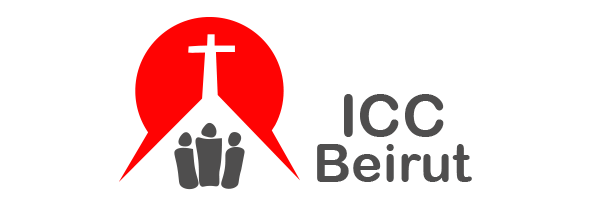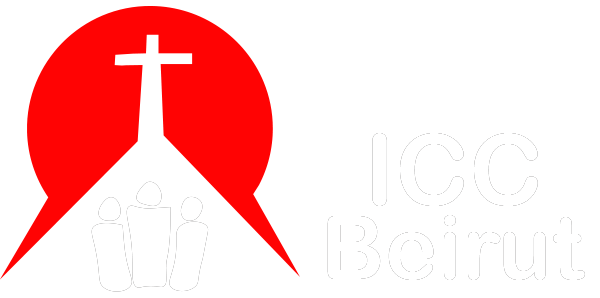Our History (1823 – current)
 The International Community Church history dates back to 1823. It is nearly as old as the Protestant mission movement in the Middle East, which began in 1819. Three locations under consideration for stationing the work of church planting in the region: Jerusalem, Damascus, and Beirut. The last was chosen and the community church began in 1823 under the joint pastoral leadership of well-known missionary William Goodell (who translated the Bible into the Armeno-Turkish language) and Isaac Bird.
The International Community Church history dates back to 1823. It is nearly as old as the Protestant mission movement in the Middle East, which began in 1819. Three locations under consideration for stationing the work of church planting in the region: Jerusalem, Damascus, and Beirut. The last was chosen and the community church began in 1823 under the joint pastoral leadership of well-known missionary William Goodell (who translated the Bible into the Armeno-Turkish language) and Isaac Bird.
Ever since its beginning, the Community Church has aimed to serve the international community in Lebanon. Its pastoral leadership has also been diverse, composing of approximately 10 denominations, while benefiting from the administrative leadership of and support by the Congregational church in England and America, Presbyterian Church of America, and the Scotland Mission Society. In the mid-20th century the church became independent after the Scotland Missionary Society recalled its last pastor.
Recent history of the church very much mirrors its past, showing that regardless of war, instability, resistance and persecution and the transience of its expat membership, the congregation remains, with sometimes as few as 3 to as high as 200 plus members. Indeed, the Community Church has gone through all the major wars in the region: the Greek War of Independence, with 8 members and pastors evacuating to Malta; WWI, where low membership almost prompted its dissolution; WWII, where it ran a hostel and added church services to cater to Allied troops stationed in Beirut; the Lebanese Civil War, that again necessitated evacuations to neighboring Cyprus; and the more recent July War of 2006 that left many homeless, particularly the refugee population that was the church’s focus group for outreach during that period.
Recent timeline of leadership, including significant events and facts (1973-2018)
- 1973-1975: Rev. Richard Wilcox (United Church of Christ)
- 1975-1982: (No full-time pastor) Rev. Dennis Hilgendorf (Lutheran missionary, Wisconsin) took the main responsibility for the congregation. He left Beirut in 1989 after having escaped three kidnapping attempts and being held captive by terrorists for two days in 1985. During this period, the members organized and led the Sunday services upon the consensus of the church council.
- 1982-1987: Rev. Dr. Harvey Staal (Reformed Church missionary, Michigan) served as full-time pastor. During this time he worked on an ancient Biblical manuscript found in Mt. Sinai in the 1800s, transcribed and published the Mt. Sinai Arabic Codex 151 that was developed in 867 A.D., possibly the oldest existing Arabic translation of the Bible. Toward the end of the war, Rev. Staal stayed in his house for around one year because of the danger of being kidnapped.
- 1971-1986: The Community Church worshipped in the Gulbenkian Amphitheater with average attendance of 200 plus on Sundays, although by 1986, only a handful of members were still left in the country. During wartime, most of the social activities and Bible studies were interrupted. Four members of the congregation were kidnapped, and the last service was held on June 1986 before the church stopped all activities.

The restart of the Community Church
- In 1998 Rev. Dr. Habib Badr finalized the reconstruction of the National Evangelical Church building. As the need for an English service became more pronounced, the Arabic congregation helped restart the Community Church. June 2002 marked the first worship service for the community church since the civil war.
- 2002-2008: Rev. Wilbert van Saane (Protestant Church, Netherlands) served as full-time pastor. In the first few months the church grew in numbers. As the congregation desired to embrace different ethnic groups and nationalities, the name was changed to “International Community Church.” A steering committee was formed to assist in church leadership.
During the period after the July War, ICC and NEC held joint worship because combined attendance dropped to an average of 20 to 25. Rev. van Saane himself left the country for a few weeks and returned soon after the war. As many refugees from Africa left Beirut, the congregation had to start from scratch once more. The three focus groups remained while work with and among refugees decreased.
The Philemon Project: In addition to pastoral care, the Church was providing practical relief in the form of provision of food, clothing, blankets, assisting in homelessness relief and healthcare. The Philemon Saturday School offered computer, craft, and business and trade classes. Philemon Preschool “Rainbow Kids Daycare” was open in 2013, followed by the Project transitioning from being a parish ministry to an independent non-profit charity.
- 2008-2014: Rev. Robert Hamd (Lebanese-American Presbyterian pastor) took on pastoral leadership. After 2010, attendance increased and a board of elders was formed in 2011.
- 2014-2019: Dr. Karen Shaw (American missionary, Connecticut) came on as pastor in 2016 (after having assisted Rev. Hamd and assuming the role of interim pastor from 2012 to 2016).
- 2018: The ICC Board of Elders voted to relocate from Riad del Sohl near the government palace to Achrafieh in the Sioufi neighborhood. The church maintained its congregational status and worship style, and shares space with an interdenominational Lebanese church.

